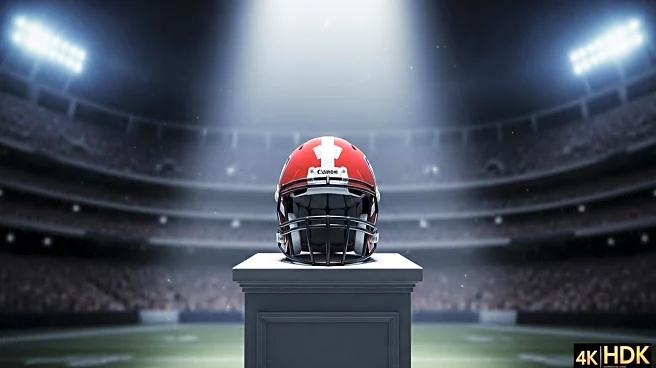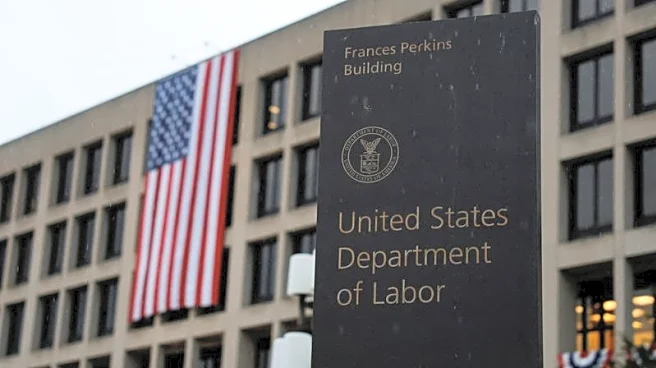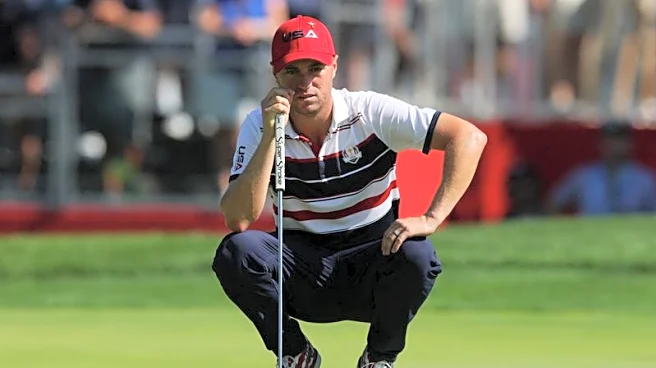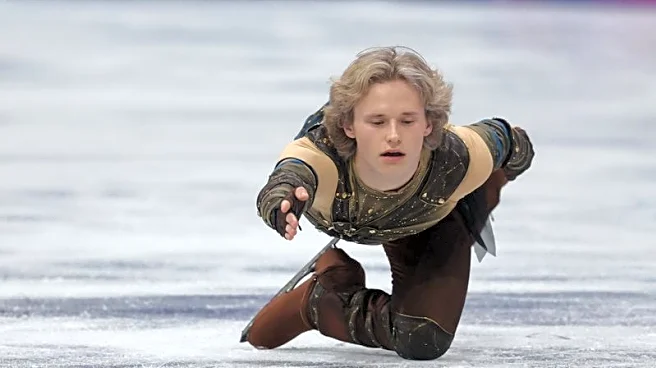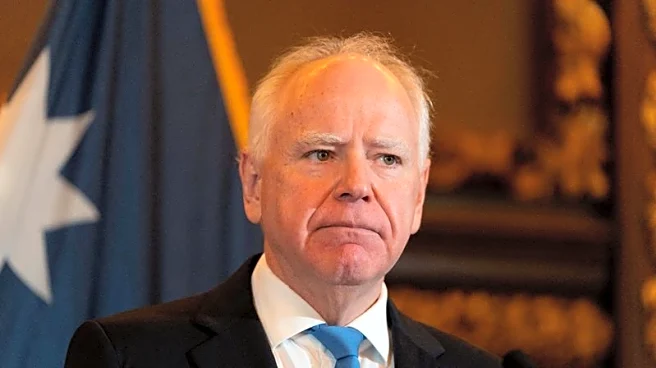What's Happening?
Darius Shaquille Leonard, a prominent linebacker known for his impactful play, has announced his retirement from the NFL at the age of 30. Leonard's career, primarily with the Indianapolis Colts, spanned six seasons, during which he earned three All-Pro selections. Drafted in the second round of the 2018 NFL Draft from South Carolina State, Leonard quickly made a name for himself with a standout rookie season, recording 163 tackles, seven sacks, and four forced fumbles. His performance earned him the nickname 'The Maniac' for his game-changing abilities. Leonard concluded his career with a brief stint at the Philadelphia Eagles, amassing 637 tackles, 17 forced fumbles, 16 sacks, and 12 interceptions over 75 games.
Why It's Important?
Leonard's retirement marks the end of a significant era for the Indianapolis Colts, who benefited greatly from his defensive prowess. His departure leaves a gap in the Colts' defense, as Leonard was a key playmaker and leader on the field. The NFL loses one of its most dynamic linebackers, whose aggressive style and ability to disrupt plays made him a fan favorite and a respected opponent. Leonard's decision to retire at a relatively young age highlights the physical demands and potential long-term health considerations associated with professional football, a topic of ongoing discussion in the sports community.
What's Next?
The Colts will need to strategize on how to fill the void left by Leonard's retirement, potentially looking to the draft or free agency to find a suitable replacement. Leonard's retirement may also prompt discussions within the league about player health and career longevity, as more athletes consider early retirement to preserve their well-being. Fans and analysts will likely reflect on Leonard's contributions to the game and his potential future endeavors, whether in coaching, sports commentary, or other fields.
Beyond the Headlines
Leonard's career and retirement may influence younger players considering their own futures in the NFL, particularly regarding the balance between career achievements and personal health. His decision could inspire a broader conversation about the support systems available to players transitioning out of professional sports, emphasizing the importance of mental health resources and career planning.
